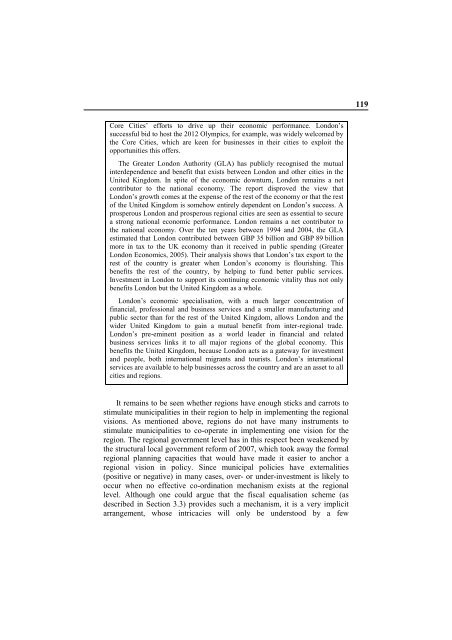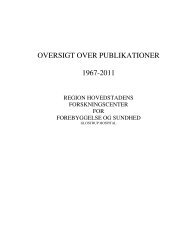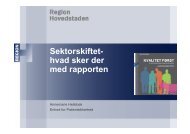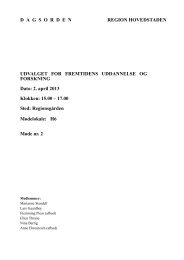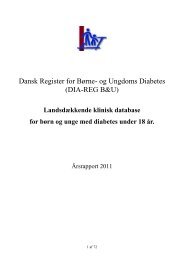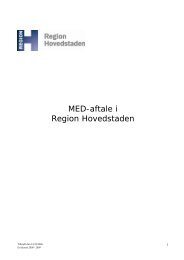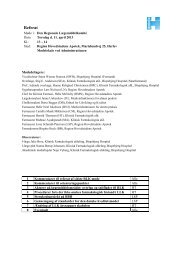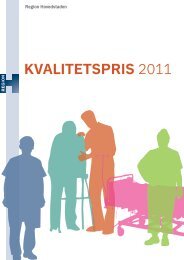Territorial Review Copenhagen - Region Hovedstaden
Territorial Review Copenhagen - Region Hovedstaden
Territorial Review Copenhagen - Region Hovedstaden
You also want an ePaper? Increase the reach of your titles
YUMPU automatically turns print PDFs into web optimized ePapers that Google loves.
119<br />
Core Cities‘ efforts to drive up their economic performance. London‘s<br />
successful bid to host the 2012 Olympics, for example, was widely welcomed by<br />
the Core Cities, which are keen for businesses in their cities to exploit the<br />
opportunities this offers.<br />
The Greater London Authority (GLA) has publicly recognised the mutual<br />
interdependence and benefit that exists between London and other cities in the<br />
United Kingdom. In spite of the economic downturn, London remains a net<br />
contributor to the national economy. The report disproved the view that<br />
London‘s growth comes at the expense of the rest of the economy or that the rest<br />
of the United Kingdom is somehow entirely dependent on London‘s success. A<br />
prosperous London and prosperous regional cities are seen as essential to secure<br />
a strong national economic performance. London remains a net contributor to<br />
the national economy. Over the ten years between 1994 and 2004, the GLA<br />
estimated that London contributed between GBP 35 billion and GBP 89 billion<br />
more in tax to the UK economy than it received in public spending (Greater<br />
London Economics, 2005). Their analysis shows that London‘s tax export to the<br />
rest of the country is greater when London‘s economy is flourishing. This<br />
benefits the rest of the country, by helping to fund better public services.<br />
Investment in London to support its continuing economic vitality thus not only<br />
benefits London but the United Kingdom as a whole.<br />
London‘s economic specialisation, with a much larger concentration of<br />
financial, professional and business services and a smaller manufacturing and<br />
public sector than for the rest of the United Kingdom, allows London and the<br />
wider United Kingdom to gain a mutual benefit from inter-regional trade.<br />
London‘s pre-eminent position as a world leader in financial and related<br />
business services links it to all major regions of the global economy. This<br />
benefits the United Kingdom, because London acts as a gateway for investment<br />
and people, both international migrants and tourists. London‘s international<br />
services are available to help businesses across the country and are an asset to all<br />
cities and regions.<br />
It remains to be seen whether regions have enough sticks and carrots to<br />
stimulate municipalities in their region to help in implementing the regional<br />
visions. As mentioned above, regions do not have many instruments to<br />
stimulate municipalities to co-operate in implementing one vision for the<br />
region. The regional government level has in this respect been weakened by<br />
the structural local government reform of 2007, which took away the formal<br />
regional planning capacities that would have made it easier to anchor a<br />
regional vision in policy. Since municipal policies have externalities<br />
(positive or negative) in many cases, over- or under-investment is likely to<br />
occur when no effective co-ordination mechanism exists at the regional<br />
level. Although one could argue that the fiscal equalisation scheme (as<br />
described in Section 3.3) provides such a mechanism, it is a very implicit<br />
arrangement, whose intricacies will only be understood by a few


